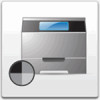Lexmark Monochrome Laser Complete Printer Reference (1.7 MB) - Page 169
Print and Hold jobs, Flash memory, Disk option, Collating print jobs
 |
View all Lexmark Monochrome Laser manuals
Add to My Manuals
Save this manual to your list of manuals |
Page 169 highlights
Print and Hold jobs There are four different types of held jobs: Confidential Job, Repeat Print, Verify Print, and Reserve Print. Although each of these jobs differ, they are all sent and held in printer memory. Therefore, to take advantage of this feature, it is important to have sufficient printer memory. See "Held Jobs" on page 32 or refer to the User's Reference for more information. Flash memory Use one of the three memory connectors to install a 2MB, 4MB, 8MB, or 16MB flash memory option. Use flash memory to permanently store downloaded fonts, macros, forms, or symbol sets. Resources stored in flash memory are not lost when the printer is reset or turned off. If you install more than one flash option in the printer, the printer recognizes the largest flash option and uses it. See "Downloaded resources" on page 174 for more information. Disk option If you need a larger storage capacity for downloaded resources, or if you need to track job statistics, buffer print jobs, or collate large jobs, you may want to install a hard disk option. Lexmark offers a hard disk option with an unformatted storage capacity of 2.1GB. As with flash memory, any items stored on disk are not lost when the printer is reset or turned off. See "Downloaded resources" on page 174 for more information. In addition to downloading and storing resources such as fonts and symbol sets, you can use a disk option for collating print jobs, tracking job statistics, and buffering print jobs. The optional Optra Forms hard disk supports Lexmark's Optra Forms, a solution that lets you print completed printer-resident forms using data from your own applications. (See "Printing forms with Optra Forms" on page 114 for more information about Optra Forms.) Collating print jobs If an optional hard disk is installed in the printer, the printer automatically uses available disk storage area to collate a large job when printer memory is not sufficient. See "Collating print jobs" on page 111 for more information. Managing memory 169















